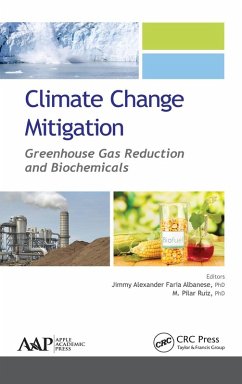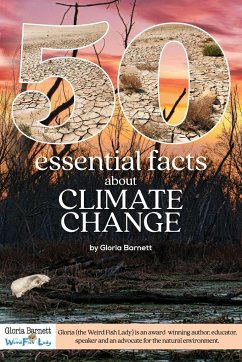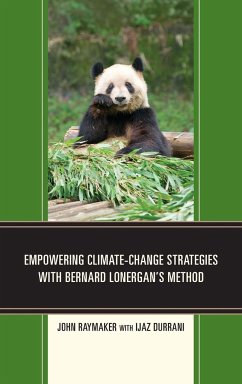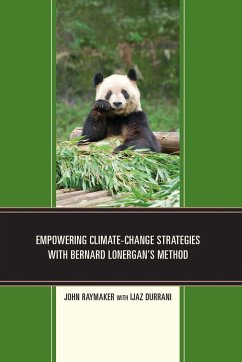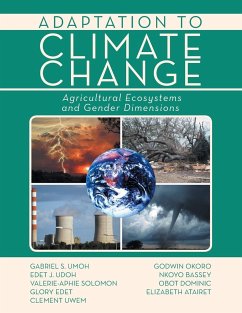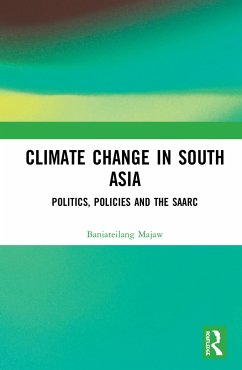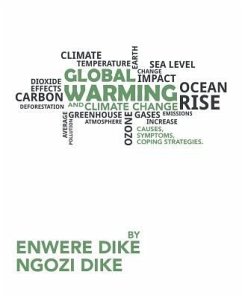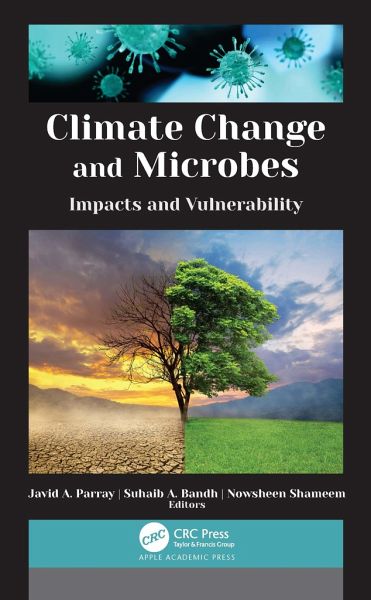
Gebundenes Buch
Climate Change and Microbes
Impacts and Vulnerability
Herausgeber: Parray, Javid A.; Shameem, Nowsheen; Bandh, Suhaib A.
Versandkostenfrei!
Versandfertig in 1-2 Wochen

PAYBACK Punkte
91 °P sammeln!




This book provides an enlightening picture of the role of microbes for sustaining life systems and how climatic factors change the course of the processes.
Javid A. Parray, PhD, is Assistant Professor in the Higher Education Department at Government Degree College Eidgah, Srinagar, India, where he teaches environmental science. He has published research articles and has authored books, including Approaches to Heavy Metal Tolerance in Plants; Sustainable Agriculture: Biotechniques in Plant Biology; and Sustainable Agriculture: Advances in Plant Metabolome and Microbiome. He was awarded the Emerging Scientist of Year Award by the Indian Academy of Environmental Science. Dr. Parray completed a fast-track project entitled "Molecular characterization and metabolic potential of rhizospheric bacteria from Arnebia benthamii across North Western Himalaya" at CORD, University of Kashmir, India. Suhaib A. Bandh, PhD, is Assistant Professor in the Higher Education Department of Jammu and Kashmir at Government Degree College, Pulwama, India, where he teaches courses on environmental science and disaster management. He is the President of the Academy of EcoScience and a life member of the Academy of Plant Sciences and the National Environmental Science Academy. He is a recipient of many awards and has participated in national and international conferences. He has recently edited and authored several books, including Freshwater Microbiology: Perspectives of Bacterial Dynamics in Lake Ecosystems; Environmental Management: Environmental Issues, Awareness and Abatement; and Environmental Perspectives and Issues . Nowsheen Shameem, PhD, is Assistant Professor in the Department of Environmental Science at Cluster University Srinagar, India. She has worked as a project associate on the DBT-sanctioned project on "Spawn production for the entrepreneurs of Kashmir Valley" at CORD, University of Kashmir, India. She has also worked as a group leader for drafting research proposals and ideas. She has published many research articles in international and national journals and has presented her research work at conferences. Dr. Shameem finished her doctorate through the University of Kashmir on "Phytochemical analysis and nutraceutical value of some wild mushrooms growing in Kashmir Valley" in 2017.
Produktdetails
- Verlag: Apple Academic Press
- Seitenzahl: 322
- Erscheinungstermin: 19. Mai 2022
- Englisch
- Abmessung: 235mm x 157mm x 22mm
- Gewicht: 619g
- ISBN-13: 9781774637210
- ISBN-10: 1774637219
- Artikelnr.: 62574699
Herstellerkennzeichnung
Libri GmbH
Europaallee 1
36244 Bad Hersfeld
gpsr@libri.de
Für dieses Produkt wurde noch keine Bewertung abgegeben. Wir würden uns sehr freuen, wenn du die erste Bewertung schreibst!
Eine Bewertung schreiben
Eine Bewertung schreiben
Andere Kunden interessierten sich für




